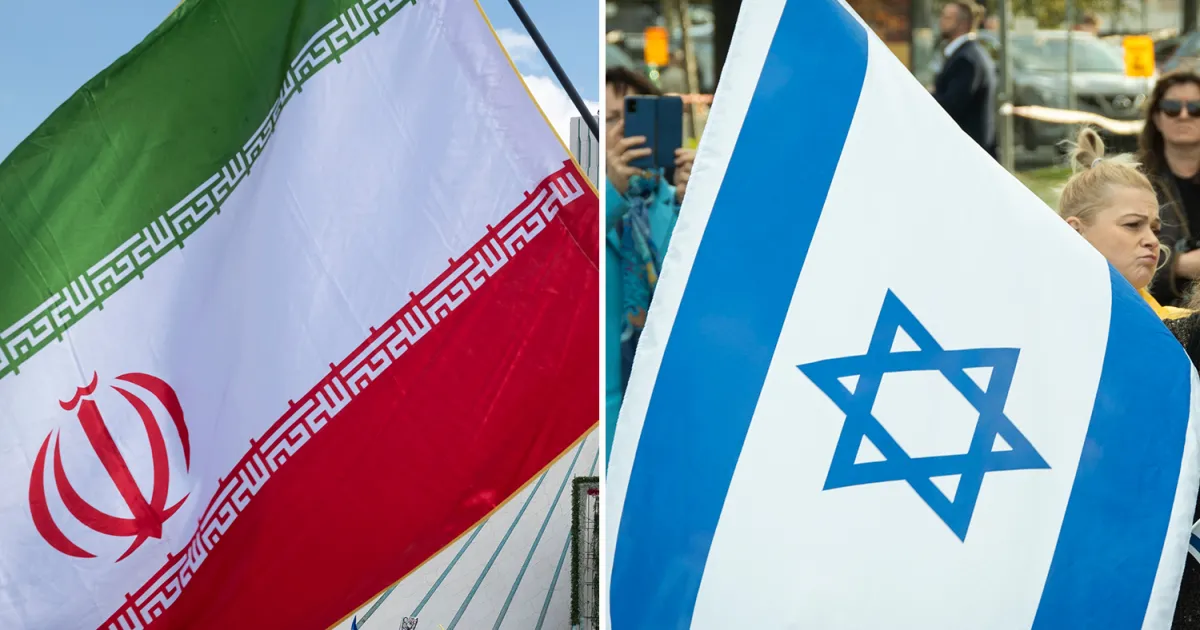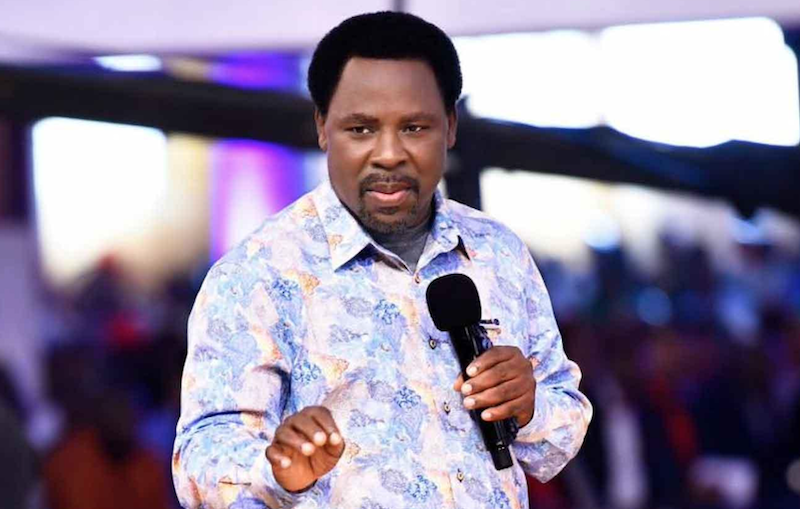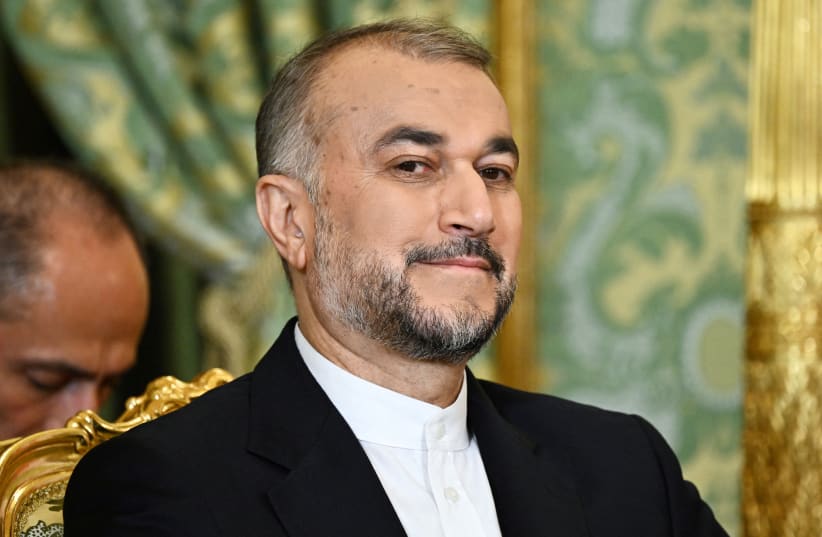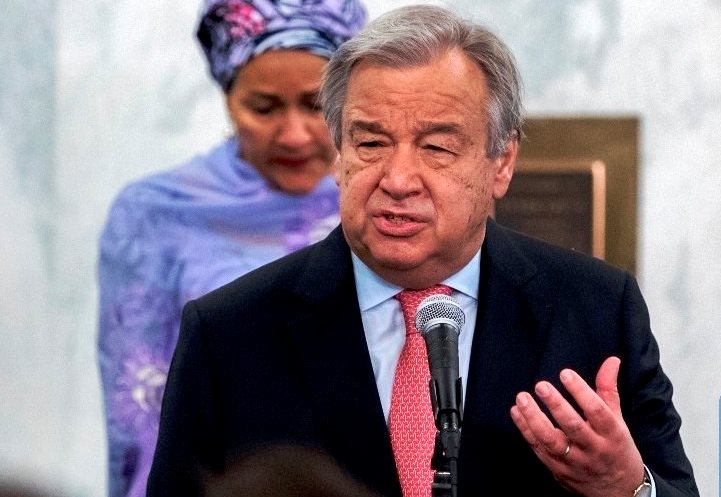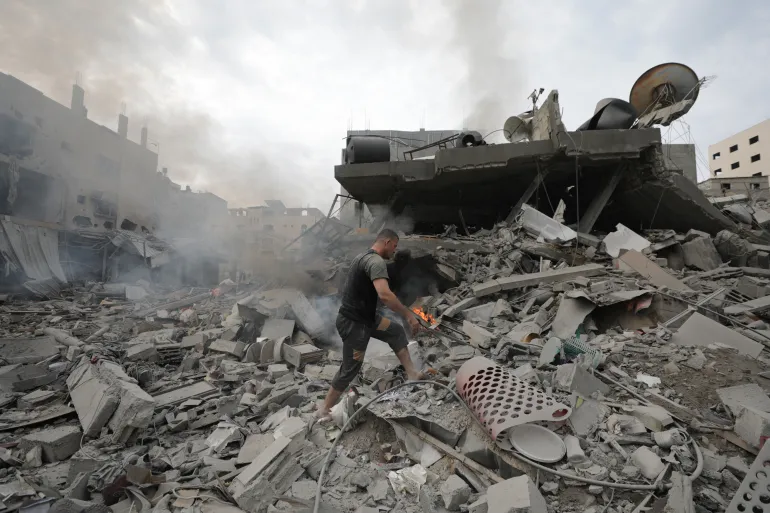A futuristic prophecy of late Prophet Temitope Balogun Joshua, popularly known as TB Joshua, has resurfaced on the Internet.
TheNewsGuru.com (TNG) reports the prophecy by late TB Joshua resurfaced amid tension between Iran and Israel.
On 14th April 2024, Iran fired 120 ballistic missiles, 30 cruise missiles and 170 UAVs against Israel, which were intercepted by Israel’s defence system with no casualty reported.
However, in the resurfaced prophecy of TB Joshua, the Synagogue Church of All Nations (SCOAN) founder said the tension between Iran and Israel he saw will be one that has not been witnessed before.
“Pray for the nation Iran. I am seeing a tension between Iran and Israel; a tension of I want to fight, I want to fight. If that should happen, it will be very serious than any other one you have ever witnessed.
“We should not stop praying, because a break in prayer, war will start,” the late prophet said in the now trending video.
Attack brings Israel, Iran to brink of war as leaders urge restraint
Iran’s direct and unprecedented attack on Israel brought the two nations to the verge of war on Sunday.
Leaders around the world called for deescalation amid fears of all-out war spreading in the Middle East.
UN Secretary-General, António Guterres, has called on the Security Council to urgently deescalate the situation in the Middle East after Iran launched a direct attack on Israel in retaliation to a suspected Israeli strike.
“The Middle East is on the brink,” Guterres told a special session of the body in New York.
“The people of the region are confronting a real danger of a devastating full-scale conflict.
“Now is the time to defuse and de-escalate. Now is the time for maximum restraint”.
The special meeting was convened at Israel’s request a day after Tehran launched its aerial attack.
“We have a shared responsibility to work for peace, Guterres told the Security Council. Neither the region nor the world can afford more war”.
U.S. President Joe Biden and the leaders of the seven leading democratic industrialised countries (G7) condemned Iran’s attack in the strongest possible terms on Sunday and underlined their full support for Israel’s security.
“With its actions, Iran has further stepped toward the destabilisation of the region and risks provoking an uncontrollable regional escalation.
“This must be avoided,’’ they said in a statement.
Of the 170 unmanned missiles and more than 30 cruise missiles launched by Iran, none reached Israel, according to the Israeli military, saying it successfully repelled the attack.
The spokesman for the Israel Defense Forces (IDF), Daniel Hagari, described the Iranian drone and missile attack on Israel as an unprecedented attack that was met with unprecedented defence.
“This is the first time that such a coalition worked together against the threat of Iran and its proxies in the Middle East’’, he said of Israel’s cooperation with international allies to shoot down the missiles.
This was led by the U.S. together with Great Britain, France and other partners.
“We are still on high alert and assessing the situation.
“Over the last few hours, we approved operational plans for both offensive and defensive actions,’’ Hagari said.
Iran’s National Security Council has warned Israel of a military response to the retaliatory strikes.
“If the Zionist regime wants to continue its malice against Iran, it will receive a response at least ten times greater than the recent attack,’’ the portal Nur News quoted a statement from the Council as saying.
Iran had chosen the smallest form of punishment for Israel and only attacked military facilities, the statement added, referring to the direct aerial attack the previous day.
Iran’s “Operation Truthful Promise’’ was mounted in revenge for an airstrike on its embassy grounds in Damascus on April 1.
The two generals and others were killed. Israel is believed to have carried out the attack and has not denied responsibility.
A 7-year-old Bedouin girl was seriously injured in the Negev desert, but otherwise there was only minor damage to property in Israel and Israeli and regional airspace reopened on Sunday morning.
Nonetheless, Israeli President Isaac Herzog called the attack a declaration of war.
Israel is now carefully considering its next steps, Foreign Minister Israel Katz said earlier in an interview with the Israeli army radio station.
“We have said: if Iran attacks Israel, we will attack Iran. And this commitment is still valid,’’ Katz said.
Others in Israel called for a regional coalition to counter Iran.
Iran would be made to pay the price for its attack on Israel as and when it suits us, Benny Gantz, a member of Israel’s war cabinet, said on Sunday.
Israel’s war cabinet was weighing a response on Sunday, after Israeli Prime Minister Benjamin Netanyahu said, “we shot down, we slowed down. Together we will win,’’ in a post on X.
Iranian President Ebrahim Raisi said the Iran’s Islamic Revolutionary Guards (IRGC) had taught a lesson to Israel and he warned against counterattacks.
“We carried out an operation of limited scope and size against the Zionist regime,’’said Commander Hussein Salami.
He said the IRGC had decided to deal with Israel differently in future.
“This new equation means that from now on, whenever the Zionist regime attacks our interests, properties, individuals and citizens, we will retaliate from the Islamic Republic of Iran,’’ he said.
Up until now, Iran has primarily relied on allied, non-state actors in Arab countries.
Western leaders including German Chancellor Olaf Scholz, French President Emmanuel Macron and European Commission President, Ursula von der Leyen, condemned the attack.
Beijing broke its relative silence on the conflict in the Middle East to express deep concern.
Biden spoke to Netanyahu on the phone, condemning the attack and reaffirming Washington’s “ironclad commitment’’ to Israel’s security.
Scholz, currently in China, condemned the attack along side German lawmakers assured Israel of their solidarity.
Von der Leyen said the G7 would continue its efforts to stabilise the situation and said the group would also discuss further sanctions on Iran, particularly its drone and missile programmes.
EU foreign ministers are due to meet on Tuesday for talks to further stabilise the situation.
